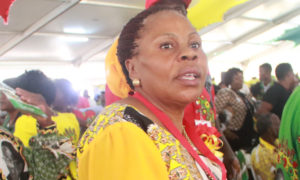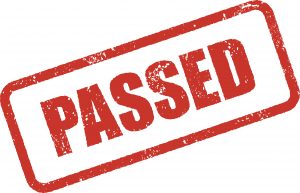
Zimbabwe has had a 21-day national lockdown starting on the 30th March 2020 and ending at midnight on Sunday 19th April. The question in most people’s mind is: Will the Government extend the lockdown? Earlier this week President Emmerson Mnangagwa indicated that the Government will be reviewing the national lockdown on the 20th or the 21st April and will consider the possibility of an extension.
WHO Advice About Extending Lockdowns
Many countries that have had strict lockdowns are now deciding whether to extend them, or impose more restrictions, or ease restrictions.
The Secretary-General of the World Health Organisation last Friday advised that countries should ensure that the following criteria are met before they lift restrictions:
- Covid-19 transmission is controlled
- Their health systems have the capacity to detect, test, isolate and treat every case of Covid-19 and trace every contact of those infected
- Outbreak risks are minimised in special settings
- Preventative measures against Covid-19 infection are in place in essential places that people go to such as workplaces, schools, etc.
- Importation risks are managed
- Communities are fully educated and engaged to adjust to the “new norm”.
A Difficult Decision Especially for Poor Countries
Obviously Zimbabwe does not fulfil any of these criteria, so extending the lockdown seems necessary. The spread of Covid-19 is probably just starting in Zimbabwe. Our health services are not equipped to handle a large pandemic, therefore containing its spread is still vital. But it needs careful thought and plans put in place. It also need government to fully explain their decisions. Authoritarian Governments find it easier to impose their decisions on their people but in democracies, governments need to carry the people with them in their decisions.
There is no doubt that Covid-19 is having a deadly impact on the economies of all countries affected by it and the subsequent lockdowns are necessary to prevent its spread. Even in rich countries the choice seems to be between peoples’ lives or a plummeting economy. Most countries have put the lives and health of their citizens first, but in a poor country where there are desperate food shortages the choice is more complex. In Zimbabwe, where most people are in the informal economy, the impact of lockdown on their livelihoods and their networks of dependants is very great. Social and economic cushioning is very limited in Zimbabwe, as in other poorer countries.
Many countries have had to use their security forces – usually police – to enforce lockdown restrictions, but when people are forced to break restrictions to get food or water conflict between security forces and citizens can become acute. In Zimbabwe the conduct of the police was criticised by the President after officers were filmed burning vegetables confiscated from farmers in Mutare. President Mnangagwa then said it was critical that food markets be allowed to function during the national lockdown. As a consequence food markets have been exempted from the tough lockdown regulations, though this exemption has been done administratively rather than through an amendment of the relevant law. It would have been better if the exemption had been planned in advance rather than granted off the cuff, as it were. Food markets are crowded and social distancing is not observed, and when the exemption was granted no provision was made to protect the people thronging to them. The police themselves have obviously not been told to take precautions and practise social distancing.
An Extension Should be Planned and Announced in Advance
Veritas strongly believes that if there is to be an extension of the national lockdown it should be announced in advance in order to prepare the members of the public, businesses, the education sector, etc. The parameters of the restrictions should be made clear in regulations or orders and these should be made known to all law enforcement agents.
A key part of the strategy on dealing with Covid-19 that has been used in other countries is to build public trust in the leadership and the information that the public receive. The Government should invest in a communication strategy which informs every member of society about measures that it will be taking in dealing with the pandemic. Any extension of the lockdown must be communicated in time and its purpose explained. Exemptions should be clear and the health of those exempted need to be fully protected. If food markets and places where the public can get water remain open and accessible the security forces should be instructed on how they can help persuade people to practise social distancing and washing of hands and contaminated surfaces, rather than beating up people.
The Government should therefore expend energy on trust building and effective communication that allows forward planning by the public as this is key to the success of the fight against Covid-19.
Veritas makes every effort to ensure reliable information, but cannot take legal responsibility for information supplied.
Post published in: Featured





 Jordan Rothman is a partner of
Jordan Rothman is a partner of 






 Jill Switzer has been an active member of the State Bar of California for over 40 years. She remembers practicing law in a kinder, gentler time. She’s had a diverse legal career, including stints as a deputy district attorney, a solo practice, and several senior in-house gigs. She now mediates full-time, which gives her the opportunity to see dinosaurs, millennials, and those in-between interact — it’s not always civil. You can reach her by email at
Jill Switzer has been an active member of the State Bar of California for over 40 years. She remembers practicing law in a kinder, gentler time. She’s had a diverse legal career, including stints as a deputy district attorney, a solo practice, and several senior in-house gigs. She now mediates full-time, which gives her the opportunity to see dinosaurs, millennials, and those in-between interact — it’s not always civil. You can reach her by email at 
 Kathryn Rubino is a Senior Editor at Above the Law, and host of
Kathryn Rubino is a Senior Editor at Above the Law, and host of